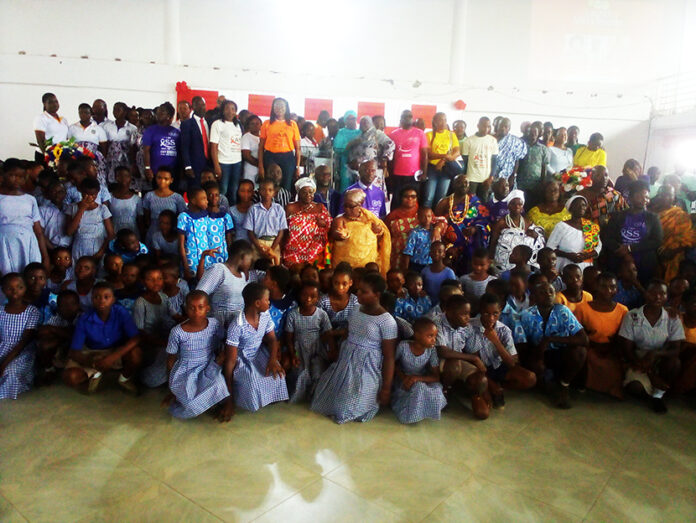The University of Health and Allied Sciences (UHAS) School of Public Health has launched a Sickle Cell Disease awareness education campaign in the Volta Region at Hohoe. It is meant to educate the people to understand and appreciate the disease to reduce the stigma associated with it.
The programme, which was attended by pupils and students, traditional rulers and parents, was under the theme: “Formalising New-born Screening and Hydroxyurea, Knowing your Status’’.
The Vice Chancellor of UHAS, Prof Lydia Aziato launching the programme, said Sickle Cell Disease was genetically passed down from parents to child, but some could carry half of what gave the disease without experiencing the condition themselves.
Prof Aziato explained that children could be born as sickle cell patients because both parents had the trait of sickle cell or one of the parents must have sickle cell disease and the other must have sickle cell trait.
She explained further that sickle cell patients normally experienced intermittent pains, most commonly felt in the bones and stomach, as well as anaemia, jaundice organ damage, disability, and could lead to death.
The Vice Chancellor emphasised the importance of regular clinic attendance, staying hydrated and blood transfusion might be needed in some cases. He added that awareness creation and regular education would help people to understand sickle cell better and provide the needed support for carriers.
According to her, even though sickle cell disease had been there for decades, many people did not know much about the disease, therefore the campaign in the region would help people to understand the disease. It would also create the needed awareness by fostering the culture of comprehensive care to reduce the stigma associated with the disease.
In a speech read on behalf of the Volta Regional Minister, Dr Archibald Letsa, by the Kpando Municipal Chief Executive (MCE), Mr Geoffrey Kodzo Badasu, he said the government had made available Hydroxyurea for the treatment of people with sickle cell disease.
Dr Letsa said the Ministry of Health, the Ghana Health Service, the Sickle Cell Foundation of Ghana, Global Medicines Company and NOVARTIS were working hard to create a holistic approach to help manage the disease and remove fear and stigma related to it.
The Minister assured that the government was committed to addressing the health needs of the citizenry including sickle cell disease management, to ensure a safe and healthy society that would enable citizens to lead healthy lives, and contribute meaningfully to national development.
The Paramount Chief of Gbi Traditional area, Togbega Gabusu VII, pledged on behalf of chiefs in Gbi traditional area, to support the campaign and commended UHAS for the launch of the sickle cell disease awareness creation through education for the region.








